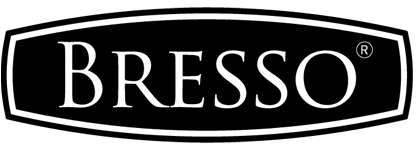Selecting the right commercial bakery dough mixer is crucial for consistent quality and efficient production.
The foundation of countless baked goods lies in perfectly mixed dough. For commercial bakeries, achieving consistent and efficient dough production requires robust and reliable equipment. This article explores the different types of bakery dough mixer equipment available, helping you select the ideal solution for your bakery’s needs.
Types of Bakery Dough Mixers
There are two main categories of commercial bakery dough mixers: spiral mixers and planetary mixers. Each type offers distinct advantages suited to specific dough types and production volumes.
Workhorses of the baking industry, spiral mixers excel at handling large batches of stiff doughs used in breads, bagels, and pizza crusts. The spiral hook attachment rotates within a stationary bowl, efficiently incorporating ingredients and developing gluten.
- Advantages: Powerful and efficient for large-capacity dough mixing. Ideal for stiff doughs requiring strong gluten development.
Disadvantages: May not be suitable for very wet doughs or delicate batters. Planetary Mixers:
Planetary mixers offer versatility for bakeries producing a wider range of products. The mixing attachment rotates around a fixed central axis, mimicking the motion of a hand mixing a bowl. Planetary mixers come with various attachments, allowing you to mix dough, batters, fillings, and icings.
- Advantages: Highly versatile for various dough types, batters, and other bakery applications. Multiple attachments increase functionality.
Disadvantages: Less powerful than spiral mixers and may not be ideal for extremely stiff doughs.
Choosing the Right Dough Mixer for Your Bakery
Several factors influence the selection of the most suitable bakery dough mixer for your operation:
Dough Types: Consider the primary types of dough you produce. Spiral mixers are ideal for stiff bread doughs, while planetary mixers excel at handling a wider variety including batters and icings.
Batch Size: The capacity of the mixer bowl needs to accommodate the typical volume of dough you mix per batch. Overloading a mixer can lead to overheating and motor strain.
Production Volume: For high-volume production environments, a powerful spiral mixer is recommended. Planetary mixers can handle smaller to medium-batch sizes.
Mixing Speed and Control: Variable speed control allows for adjustments based on the dough type and stage of mixing. Look for mixers with digital controls for precise speed selection.
Additional Features: Consider features like timers, automatic shutoff, and bowl hoisting mechanisms for improved efficiency and operator safety.
Beyond the Basics: Specialized Dough Mixers
For bakeries with specific needs, specialized dough mixers offer additional functionalities:
Two-arm Mixers: Designed for high-hydration doughs used in artisan breads and focaccia. Two independently-driven mixing arms mimic hand-kneading techniques.
Dough Sheeting Lines: High-volume operations may benefit from automated dough sheeting lines. These integrate mixing, sheeting, and folding functions for efficient dough preparation.
Investing in the right bakery dough mixer equipment empowers you to achieve consistent quality, improve production efficiency, and streamline your workflow.

